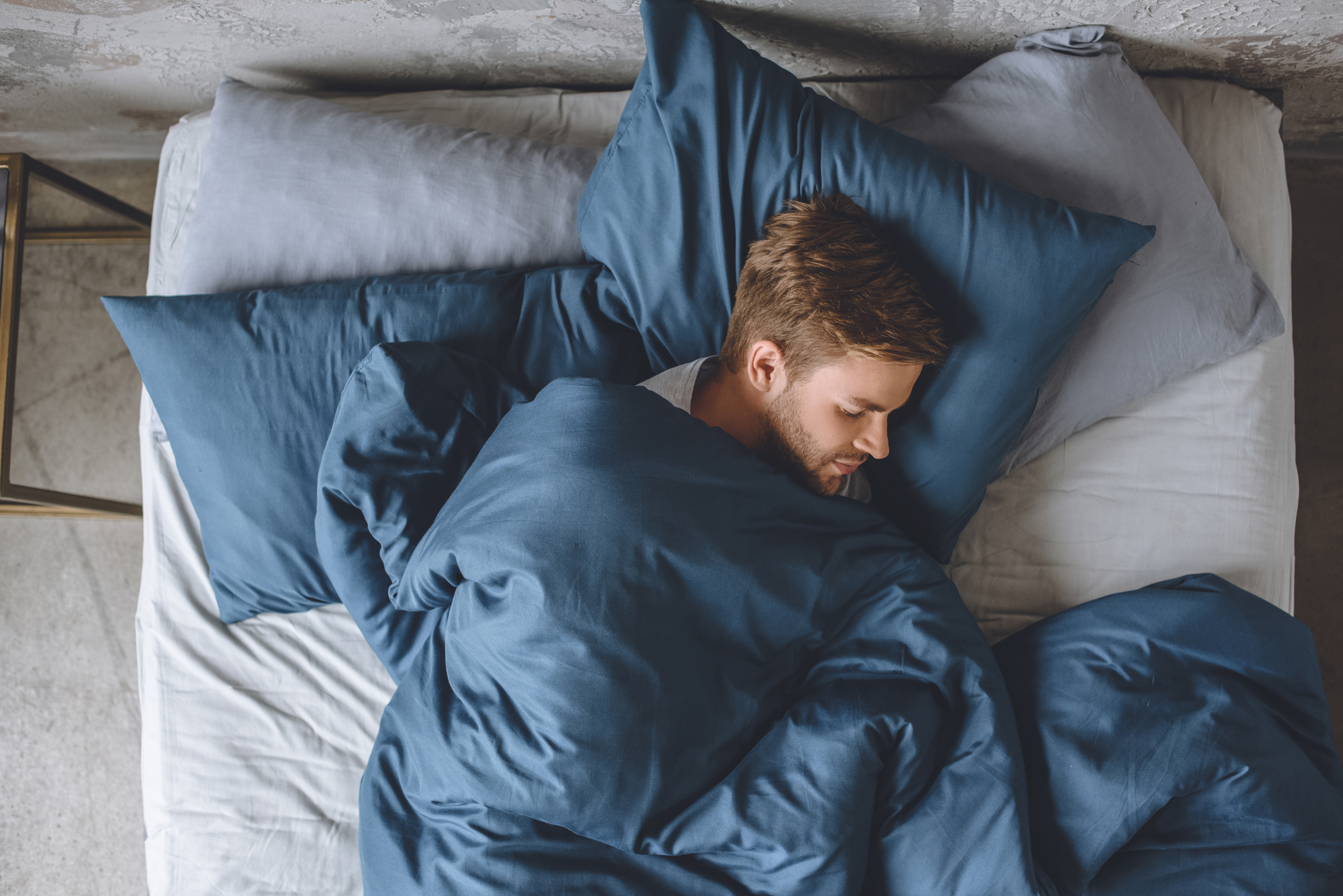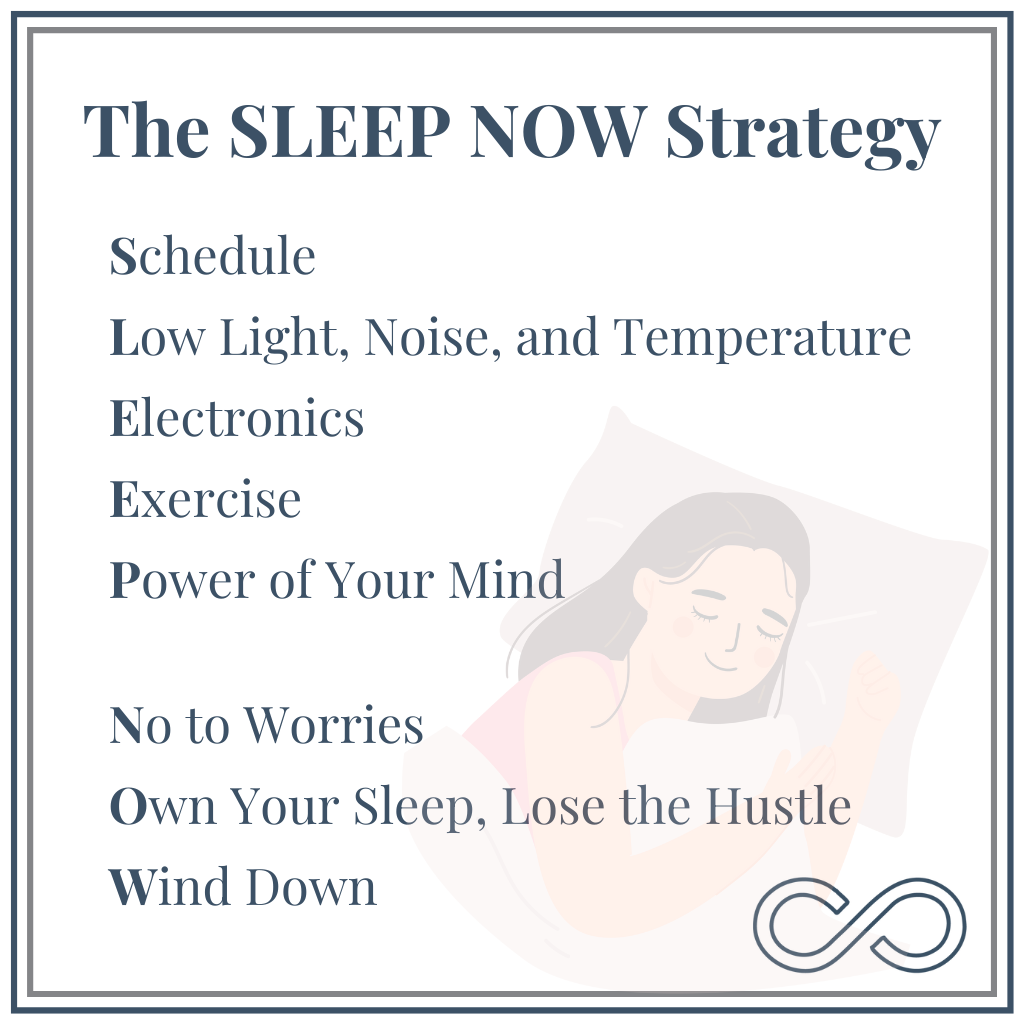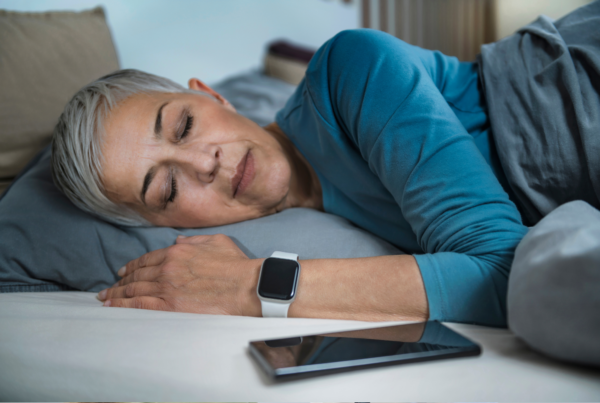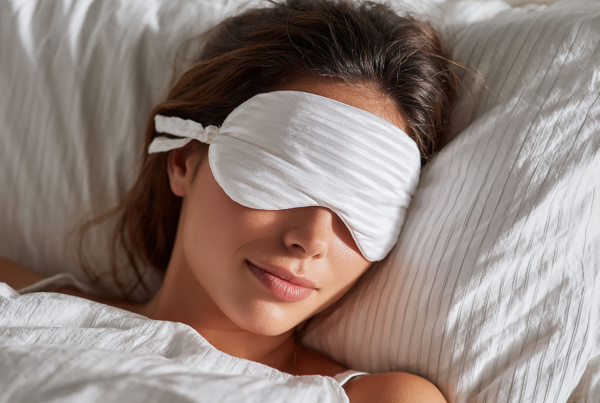Download file | Play in new window | |
In a world that glorifies “the hustle” and constant productivity, sleep often gets relegated to a necessary inconvenience rather than the powerful health booster it truly is.
We recently had the privilege of speaking with Dr. Bijoy John, a leading expert in sleep medicine, on our Future of Medicine podcast. With over 25 years of experience in pulmonary, critical care, and sleep medicine, Dr. John brings a wealth of knowledge and a refreshing perspective to the oft-overlooked realm of sleep.
Dr. John’s journey into sleep medicine began with a simple observation: When he prioritized sleep, he performed better in all aspects of his life. This sparked a deep fascination with sleep’s power and its profound impact on our physical, mental, and emotional well-being. “Sleep is a superpower we have,” Dr. John asserts, and his passion lies in guiding others to harness its full potential.
Unpacking the SLEEP NOW Acronym: Practical Steps for Better Sleep
Dr. John shared his simple yet profoundly effective acronym, SLEEP NOW, outlining seven proven strategies he’s honed during his years of practice. These strategies move beyond generic sleep advice, offering actionable steps you can implement today to reclaim your slumber:
S — Schedule: Just as we prioritize important meetings and appointments, we need to schedule our sleep with the same intentionality. Dr. John emphasizes the importance of consistency, suggesting an ideal sleep window between 10 p.m. and 6 a.m. He cautions against going to bed too early, advising that you should go to bed close to the time you typically fall asleep. This consistency, even if you don’t initially fall asleep right away, is crucial for resetting your natural sleep rhythm.
L — Low Light, Low Noise, Low Temperature: Creating a sleep-conducive environment is your secret weapon. Darkness, for example, triggers the release of melatonin, your natural sleep hormone. Ensure your bedroom is dark, quiet, and cool, ideally between 65–70 degrees Fahrenheit.
E — Electronics: The blue light emitted from phones and other electronic devices disrupts melatonin production, signaling to our brains that it’s still daytime. Dr. John recommends disconnecting from electronics at least 30 minutes before bed, emphasizing that even a quick glance at your phone in the middle of the night can be detrimental to your sleep cycle.
E — Exercise: While regular exercise is essential for overall health, the timing of your workout matters. Exercising too close to bedtime can interfere with sleep. Dr. John recommends completing your workout at least four hours before bed to allow your body temperature time to cool down — another essential for melatonin production.
P — Power of Your Mind: Quieting a racing mind is easier said than done. To help “power off” your mind, Dr. John recommends two techniques:
- Vivid Imagination: Before sleep, engage your mind in a calming, abstract visualization. Imagine yourself in a peaceful scenario, far removed from the worries of the day. This allows your mind to detach from reality and enter a state of relaxation.
- Yoga Nidra: This ancient practice, meaning “yogic sleep,” involves systematically relaxing different parts of your body while lying down with your palms facing upward. As you focus on each body part, you release tension and invite a sense of deep calm.
N — No to Worries: Worrying is a natural part of life, but it shouldn’t follow us to bed. Dr. John suggests designating a specific time each day, ideally outside the bedroom, to address your concerns. This compartmentalization prevents worries from seeping into your sleep time.
O — Own Your Sleep, Lose the Hustle: In our busy world, we often try to force sleep, but Dr. John emphasizes the importance of a gentle approach. Winding down in the hours leading up to bedtime is crucial. Embrace calming activities like reading, taking a warm bath, or light stretching to signal to your body and mind that it’s time to rest.
W — Wind Down: Sleep isn’t an on/off switch; it’s a gradual process. Aim to start your wind-down routine at least two hours before bedtime, allowing your mind and body to transition into a restful state.
Addressing Sleep Challenges: When Sleep Doesn’t Come Easily
Dr. John acknowledges that achieving consistent, restful sleep isn’t always straightforward. Many individuals struggle with either sleep onset (difficulty falling asleep) or sleep maintenance (waking up during the night and struggling to fall back asleep). He stresses that understanding the root cause of your sleep difficulties is crucial for finding effective, long-term solutions.
For those who find themselves waking up in the middle of the night, Dr. John recommends:
- Maintaining your sleep space: Resist the urge to check your phone or turn on the light. Doing so disrupts your sleep cycle and makes it harder to fall back asleep.
- Identifying potential medical factors: Several underlying conditions can contribute to nighttime awakenings, including sleep apnea, hormonal imbalances, restless leg syndrome, and acid reflux. Consult a healthcare professional to investigate underlying issues and get a proper diagnosis and treatment.
- Addressing stress and anxiety: If stress and anxiety are contributing to your sleep difficulties, explore relaxation techniques such as meditation, deep breathing exercises, or journaling to calm your mind before bed.
Sleep Apnea: A Commonly Overlooked Culprit
Sleep apnea, a condition characterized by pauses in breathing during sleep, is a significant contributor to sleep disturbances, often going undiagnosed and untreated. Some of the more obvious symptoms include snoring, gasping for air during sleep, and excessive daytime sleepiness.
Though many cases of sleep apnea remain undiagnosed, identifying and treating sleep apnea has become more accessible with the advent of home sleep studies. These studies gather data on your sleep patterns in the comfort of your own home.
Fortunately, sleep apnea is treatable. Depending on the severity of your case, treatment options range from lifestyle modifications to Continuous Positive Airway Pressure (CPAP) therapy to newer innovations like oral appliances and nerve stimulation devices.
The Interplay of Sleep, Weight, and Hormones
Sleep, weight, and hormone levels are intricately intertwined. Poor sleep can disrupt hormonal balance, leading to increased appetite, weight gain, and a higher risk of developing conditions like sleep apnea. Conversely, being overweight or obese can also contribute to sleep-disordered breathing, creating a vicious cycle that’s difficult to break.
Dr. John emphasizes that addressing sleep should be a primary focus when aiming to lose weight or improve hormonal health. When you prioritize sleep, you equip your body with the energy and hormonal balance needed to support a healthy metabolism, reduce cravings, and make sustainable lifestyle changes.
Sleep Medications: A Last Resort, Not a Long-Term Solution
While sleep medications can provide temporary relief, Dr. John cautions against relying on them as a long-term solution. He stresses that addressing the underlying causes of your sleep difficulties should always be the priority.
If you’re currently taking sleep medications and seeking to wean yourself off, Dr. John recommends:
- Gradual tapering: Slowly reduce your dosage under the guidance of your healthcare provider to minimize withdrawal symptoms.
- Addressing underlying conditions: Work with your doctor to address any medical or psychological factors that may contribute to your sleep difficulties.
- Implementing lifestyle changes: Embrace the SLEEP NOW strategies to establish healthy sleep habits and minimize your reliance on medication.
Reclaim Your Sleep, Reclaim Your Health
Sleep isn’t a luxury; it’s a fundamental pillar of health and well-being. By understanding the profound impact sleep has on your physical, mental, and emotional health, and by implementing the practical strategies outlined by Dr. John, you can tap into the incredible power of sleep and unlock a healthier, more vibrant you.
If you’re struggling with sleep challenges, remember that you’re not alone. I encourage you to explore the resources offered by Dr. John, including his new book, Nobody’s Sleeping: The 7 Proven Sleep Strategies, available on Amazon and at major retailers. You can also connect with Dr. John through his website, Sleep Fix Academy, and explore his online courses and resources.
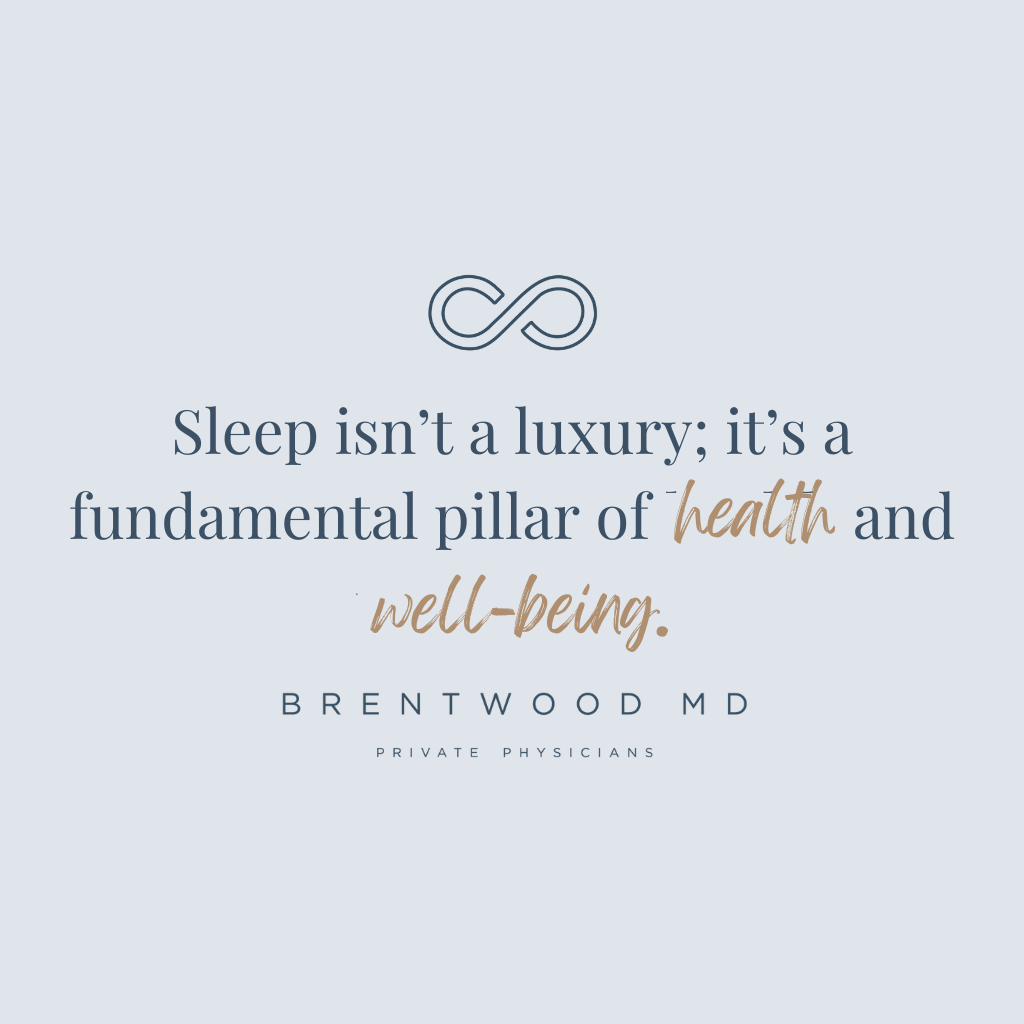
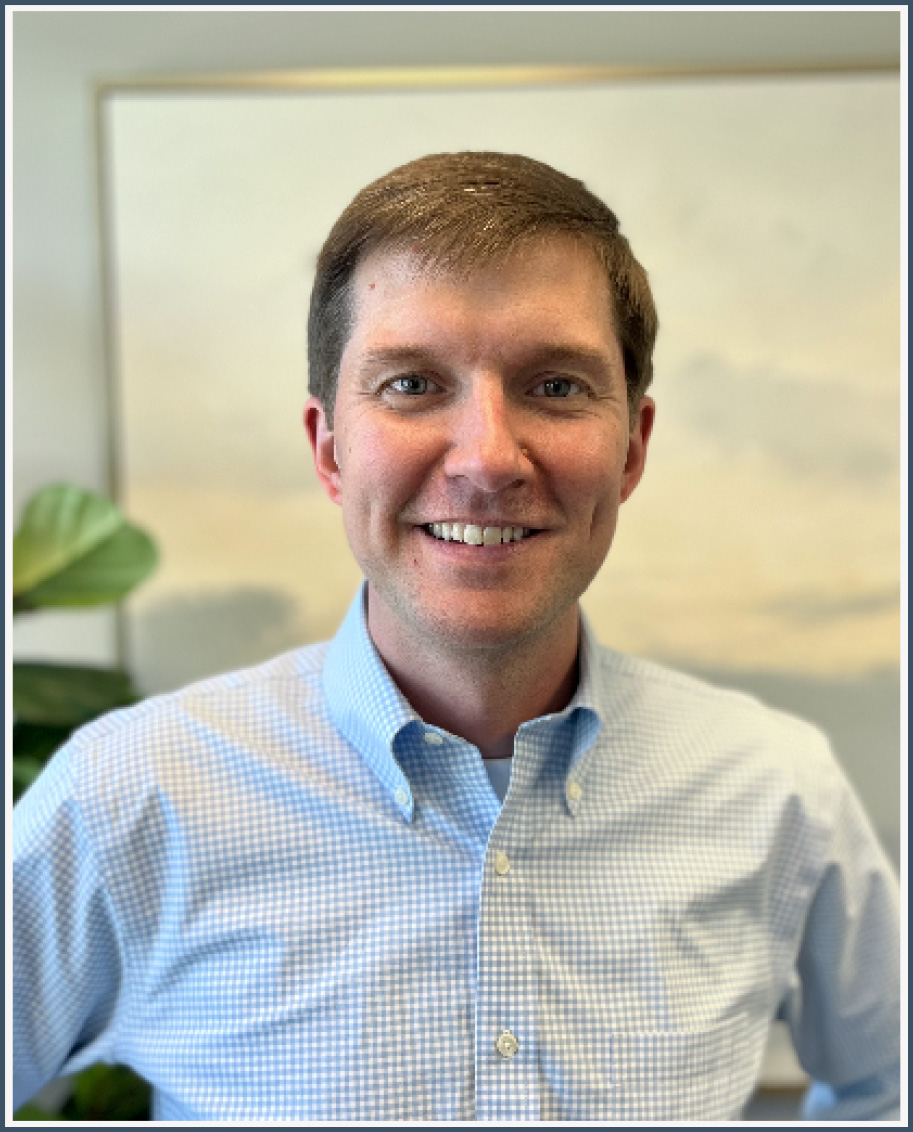
Dr. Wright joined Brentwood MD in 2022 as the model allows him to spend more time connecting with patients and build a foundation of exceptional care. He is a Nashville native and completed his family medicine residency at the University of Tennessee Health Science Center, where he also served as Chief Resident. He believes that your health deserves a prominent position on your priority list, and would be honored to serve you and your family.



